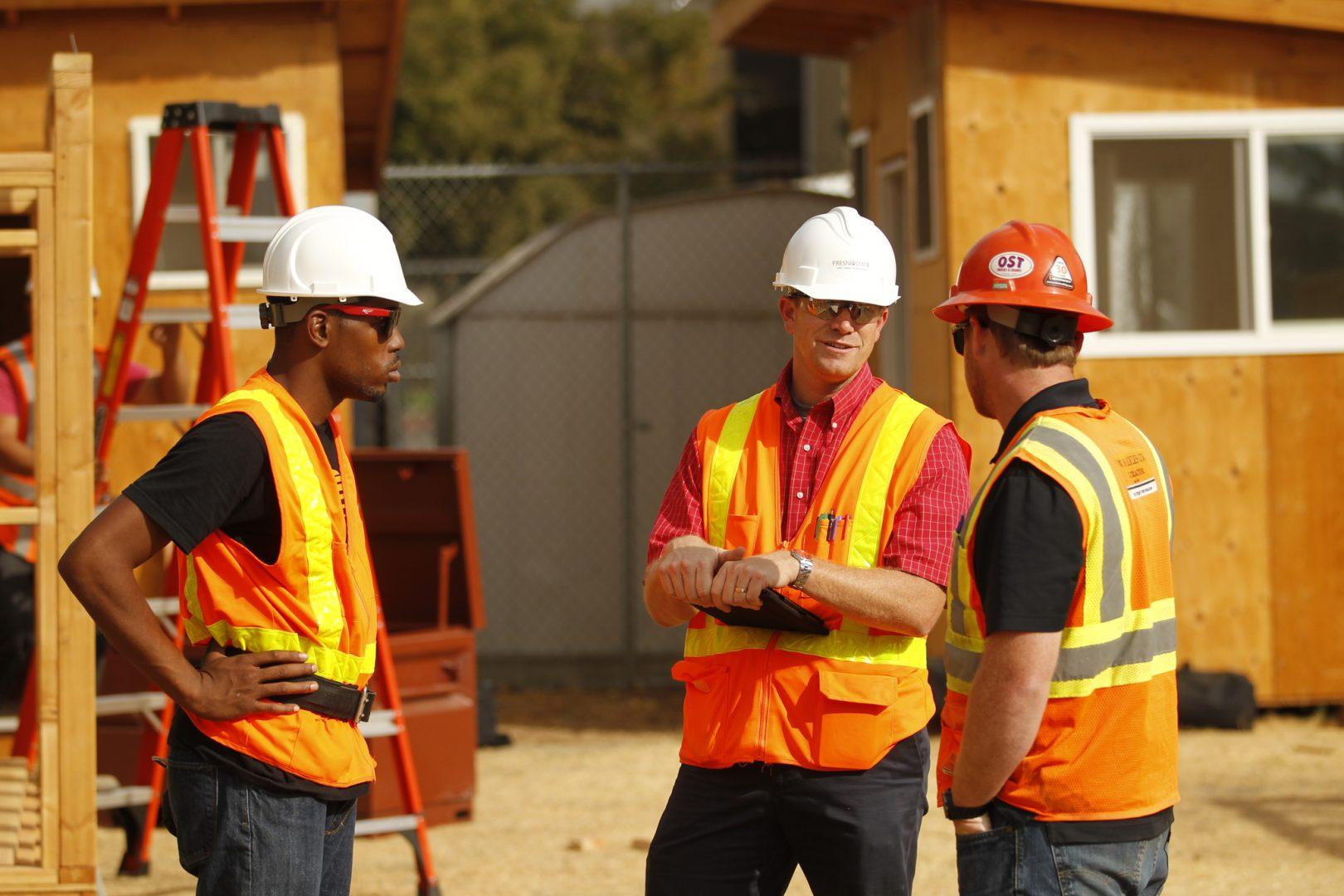For students interested in pursuing architecture or construction management at Fresno State, a new course being offered in fall of 2021 will give them the opportunity to construct emergency sleeping cabins for the community while also earning units towards their degree.
Brad Hyatt, associate professor in the department of construction management, and Michele Randel, architecture program coordinator for architecture studies, are the two at the forefront of creating these lab classes at Fresno State.
Hyatt and Randel’s lab courses will give students the opportunity to build various structures throughout the duration of their fall or spring semester.
“I wrote a grant application last year, an education grant, to develop a new series of hands-on lab courses for construction management and architecture students,” Hyatt said. “Those lab classes require students to design, manage and build a very small structure… We used to build sheds, we’ve done tiny houses, we’ve done micro shelters, we’ve done a lot of things in the past 10-12 years.”
Recently, California passed an update on their building codes allowing for the creation of emergency sleeping cabins which provides temporary shelter to those displaced from their homes due to homelessness, natural disasters or other underlying circumstances.
After hearing this, Hyatt and Randel’s idea of creating these in-person lab classes started to come to life.
The grant that Hyatt applied for is an annual grant through the Construction Employers Association of California (CEA) which provides an endowment to support construction programs across the state by equipping programs with project managers, construction managers and more.
Schools that have been funded by the grant include Cal Poly, UC Berkeley, Chico State, Sacramento State, Fresno State and more, Hyatt said.
In the past, Hyatt said that the grant has funded the creation of a leadership and social media program as well as the development of virtual field trips which came in handy when the pandemic began.
“I think we’ve tried really hard to be innovative and to do something different every year with it [the grant]. This past year we had this plan for a while to develop these labs… we thought this is a great fit for that grant and the organization agreed,” Hyatt said.
Hyatt and Randel said there will be a total of three new lab classes, one lower division course that will consist of both architecture and construction management students and two upper division courses that divide the two majors into their own prospective courses.
“I think it’s [the lab courses] exciting for our program, because it’s going to be a great collaboration for the students… it’s gonna be such hands on learning for them,” Randel said.
“Construction is very collaborative and so us being able to do these labs together with mixes of majors is I think going to be, you know, the way the future of education is going in this kind of field.”
The three lab courses will run as one unit each for students enrolled, and each semester a new project will be presented to the team.
This fall, Hyatt and Randel will be focusing on the construction of the emergency sleeping cabins, meaning students will have 15 weeks to design, manage and build these cabins.
With this course being new to Fresno State’s campus, Hyatt said only one lab class will be available in the fall semester to students of all levels.
“We kind of want to work out the kinks a little bit, but after that [fall] it will be three seperate lab classes, and we’re still in the approval classes to get those three classes approved,” he said.
While the CEA grant provided the funding for the creation of these new courses, funding is still needed to gather the materials and supplies for the creation of the emergency sleeping cabins.
The construction management department in the Lyles College of Engineering on campus utilized crowdfunding as a way to gain funds for their upcoming project.
“This is the first time we’ve done crowdfunding… I’m not an expert in crowdfunding and so I’ve learned a lot of lessons, I think, you know, the support has been really good,” Hyatt said.
“It looks like at this point it’s going to be tough for us to meet kind of our big goal, but from this we’ve gotten lots of people reaching out, interested in learning more… so I think from that standpoint it’s been highly successful and kind of spreading the word on what we want to accomplish.”
Although crowdfunding doesn’t continue throughout the entire year, Hyatt said people can still donate to the creation of these cabins if they’d like to.
“One of the nice things about crowdfunding is once the account is set up, the account is there perpetually so the count doesn’t go away it’s there long term, so we can continue to accept donations, monetary donations, even after crowdfunding is over,” he said.
For those who are interested in donating supplies to the team, Hyatt encourages them to reach out to him personally to discuss the types of material they’re wanting to donate.
“I’m a firm believer in that our students, to be successful, they have to do things that they can see the tangible outcomes within a class,” he said.
“I think when we can give them experiences where they’re doing hands-on activities and they physically get to see a project start and finish, you know to me that’s exciting.”




